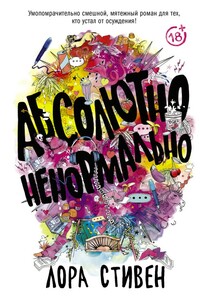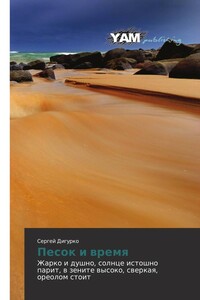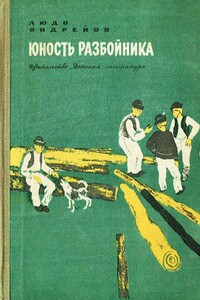36 Arguments for the Existence of God - [26]
Its melancholy, long, withdrawing roar,
Retreating, to the breath
Of the night-wind, down the vast edges drear
And naked shingles of the world.
Ah, love, let us be true
To one another! for the world, which seems
To lie before us like a land of dreams,
So various, so beautiful, so new,
Hath really neither joy, nor love, nor light,
Nor certitude, nor peace, nor help for pain;
And we are here as on a darkling plain
Swept with confused alarms of struggle and flight,
Where ignorant armies clash by night.
It was such an astounding rendition, the last stanza recited at an accelerated pace, quickened with a kind of arcing, aching desperation. Just as the eternal note of sonorous sadness had always been there in the waves’ pounding, even before the poet had heard it, so, too, the rhetorical urgency of that last stanza had been in the poem, only Cass had been deaf until this moment.
Jonas Elijah Klapper himself seemed unspeakably moved, to the point of prostration, by his own performance. He placed his right elbow, swathed in the brown suede patch ornamenting the dusky tweed, onto the table and buried his furrowed brow into his fleshy open palm.
And from that forlorn posture, his face hidden from sight, he sent forth a query.
“‘Its melancholy, long, withdrawing roar.’ Why the ‘melancholy’? Why the ‘long’? Why the ‘withdrawing roar’?”
His voice was so weakened that he could barely muster the rolling r’s that he had elocuted to perfection moments before.
A sustained and uneasy silence followed the withdrawing roar. The lack of a response stretched itself out, until the silence itself seemed like a metaphysical presence that had quietly crept in and taken a seat at the seminar table. Even Gideon Raven stared down at the gnawed fingers of his left hand, which were playing keyboard on the left thigh of his crossed legs.
Cass was amazed by the vacancy that had suddenly invaded the room. Though Cass’s understanding of the poem had been immeasurably deepened by the professor’s recitation, no great insight was required to answer the question on the table. Obviously, Professor Klapper had thrown it out just to get the ball rolling.
And there sat Jonas Elijah Klapper, his outspread palm still cushioning his mighty brow. The very sunbeams splattering on the grainy wooden table seemed to tremble with the tension. They were all, even the sunbeams, letting Jonas Elijah Klapper down; and in letting Jonas Elijah Klapper down, they were doing nothing less than disappointing the whole of Western civilization, its faith, its literature, its values.
Could Cass, callow as he was, allow this to happen? He knew that, among all the people in that breathlessly strained room, he was, without a doubt, the least qualified to speak. He included here the toothsome undergraduates, who had probably been studying poetry longer than he, who was, after all, only an importunate petitioner from pre-med.
Cass felt physically incapable of maintaining his silence, not only because of Jonas Elijah Klapper, and all he stood for, but also because of how “Dover Beach” had laid its palpating finger on the something soft and inchoate inside him, the thing he hardly dared to call his soul. Just like the lyrical narrator, he, too, had been paddling around oblivious on the surface of a sea of faith that he had presumed was infinitely benign, only to submerge his ears below the waves and hear the eternal note of sadness, like the mermaids singing each to each that Alfred Prufrock says he had heard once-no, maybe not like Prufrock’s mermaids-and to wonder, along with the poet, what’s left to believe in? and to grasp at the same answer that the poet had seized on: love and love alone. Love is the only solace. Not just any love, of course, not an easy, superficial love, but the love of the like-minded, the like-souled, the one who hears the eternal note of sadness in the same key and register as you. Together with such a love, clasping each other tightly round for dear life, you can gaze out the window at the dream-stripped harshness and bear the awful sight of it.
Jonas Elijah Klapper, sunk in his blinded pose, didn’t see the lone hand raised aloft. And so, in service to the poet, to the seminar, to Faith and Literature and Values, but, first and foremost, to Jonas Elijah Klapper himself, Cass tentatively began to speak into the void, of how the absolute faith of the childhood of man, in both the individual and the species, “which I guess would be the Middle Ages, when belief in an ultimate divine presence was full and calm and sweet, was wrenched away in a long, withdrawing roar, as we grow up and discover the way the world really is, through science and most especially the theory of evolution.
“Darwin’s fingerprints are all over this poem. The Origin of Species had been published just a few years before ‘Dover Beach’ was published.”
Cass had done his homework, not only perusing the poem at least thirty times-he himself had it memorized by the eighth or ninth read- but going to the Lipschitz Library and reading everything about the poem he could get his hands on.

Жизнь – это чудесное ожерелье, а каждая встреча – жемчужина на ней. Мы встречаемся и влюбляемся, мы расстаемся и воссоединяемся, мы разделяем друг с другом радости и горести, наши сердца разбиваются… Красная записная книжка – верная спутница 96-летней Дорис с 1928 года, с тех пор, как отец подарил ей ее на десятилетие. Эта книжка – ее сокровищница, она хранит память обо всех удивительных встречах в ее жизни. Здесь – ее единственное богатство, ее воспоминания. Но нет ли в ней чего-то такого, что может обогатить и других?..

У Иззи О`Нилл нет родителей, дорогой одежды, денег на колледж… Зато есть любимая бабушка, двое лучших друзей и непревзойденное чувство юмора. Что еще нужно для счастья? Стать сценаристом! Отправляя свою работу на конкурс молодых писателей, Иззи даже не догадывается, что в скором времени одноклассники превратят ее жизнь в плохое шоу из-за откровенных фотографий, которые сначала разлетятся по школе, а потом и по всей стране. Иззи не сдается: юмор выручает и здесь. Но с каждым днем ситуация усугубляется.

В пустыне ветер своим дыханием создает барханы и дюны из песка, которые за год продвигаются на несколько метров. Остановить их может только дождь. Там, где его влага орошает поверхность, начинает пробиваться на свет растительность, замедляя губительное продвижение песка. Человека по жизни ведет судьба, вера и Любовь, толкая его, то сильно, то бережно, в спину, в плечи, в лицо… Остановить этот извилистый путь под силу только времени… Все события в истории повторяются, и у каждой цивилизации есть свой круг жизни, у которого есть свое начало и свой конец.

С тех пор, как автор стихов вышел на демонстрацию против вторжения советских войск в Чехословакию, противопоставив свою совесть титанической громаде тоталитарной системы, утверждая ценности, большие, чем собственная жизнь, ее поэзия приобрела особый статус. Каждая строка поэта обеспечена «золотым запасом» неповторимой судьбы. В своей новой книге, объединившей лучшее из написанного в период с 1956 по 2010-й гг., Наталья Горбаневская, лауреат «Русской Премии» по итогам 2010 года, демонстрирует блестящие образцы русской духовной лирики, ориентированной на два течения времени – земное, повседневное, и большое – небесное, движущееся по вечным законам правды и любви и переходящее в Вечность.

События, описанные в этой книге, произошли на той странной неделе, которую Мэй, жительница небольшого ирландского города, никогда не забудет. Мэй отлично управляется с садовыми растениями, но чувствует себя потерянной, когда ей нужно общаться с новыми людьми. Череда случайностей приводит к тому, что она должна навести порядок в саду, принадлежащем мужчине, которого она никогда не видела, но, изучив инструменты на его участке, уверилась, что он талантливый резчик по дереву. Одновременно она ловит себя на том, что глупо и безоглядно влюбилась в местного почтальона, чьего имени даже не знает, а в городе начинают происходить происшествия, по которым впору снимать детективный сериал.

«Юность разбойника», повесть словацкого писателя Людо Ондрейова, — одно из классических произведений чехословацкой литературы. Повесть, вышедшая около 30 лет назад, до сих пор пользуется неизменной любовью и переведена на многие языки. Маленький герой повести Ергуш Лапин — сын «разбойника», словацкого крестьянина, скрывавшегося в горах и боровшегося против произвола и несправедливости. Чуткий, отзывчивый, очень правдивый мальчик, Ергуш, так же как и его отец, болезненно реагирует на всяческую несправедливость.У Ергуша Лапина впечатлительная поэтическая душа.